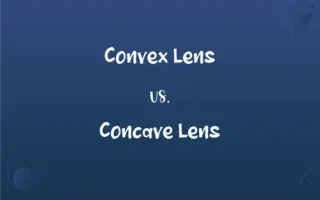Electrolysis involves using electric current to destroy hair follicles, while laser hair removal uses light energy to target pigment in the hairs

Key Differences
Electrolysis is a method of hair removal that utilizes an electric current to destroy the root of individual hairs. This process is considered permanent because it targets the hair follicle directly. On the other hand, laser hair removal employs concentrated light beams, targeting the melanin in hair to hinder the growth of hair follicles. Both methods are sought after for long-term hair reduction or removal.
Electrolysis has been around longer than laser hair removal. While both processes are effective, electrolysis can be more time-consuming as it treats individual hairs. Laser hair removal, in contrast, can treat many hairs at once, making it faster for larger areas like the legs or back.
One key difference between electrolysis and laser hair removal is their suitability for different skin and hair types. Electrolysis works on all skin tones and hair colors because it doesn't rely on melanin. Laser hair removal, however, is most effective on individuals with light skin and dark hair due to the technology's reliance on targeting melanin.
The level of discomfort varies between electrolysis and laser hair removal. Some find electrolysis to be more painful because it involves inserting a tiny needle into each hair follicle. Laser hair removal can cause a sensation akin to a rubber band snapping against the skin. Both methods might require multiple sessions for optimal results.
Comparison Chart
Method
Uses electric current to destroy hair follicles.
Uses light energy to target pigment in hairs.
ADVERTISEMENT
Effectiveness
Permanent hair removal
Long-term hair reduction.
Suitability
Suitable for all skin tones and hair colors.
Best for light skin and dark hair.
Treatment Time
Treats individual hairs; can be time-consuming.
Treats multiple hairs at once; faster for large areas.
Discomfort Level
Can be more painful; needle insertion.
Feels like a rubber band snap; less invasive.
Electrolysis and Laser Hair Removal Definitions
Electrolysis
A process using electric currents to break down substances.
She opted for electrolysis to remove stubborn rust from the metal.
ADVERTISEMENT
Laser Hair Removal
A cosmetic procedure using lasers to reduce hair growth.
She had laser hair removal on her legs and now rarely shaves.
Electrolysis
A methodmetals
Electrolysis of alumina yields pure aluminum.
Laser Hair Removal
A procedure requiring multiple sessions for optimal results.
She booked four sessions of laser hair removal for her bikini area.
Electrolysis
The production of chemical changes by passing electric current through a solution.
The lab uses electrolysis for various experimental processes.
Laser Hair Removal
A method less effective on light-colored hair due to melanin targeting.
Her blonde hair was a challenge for effective laser hair removal.
Electrolysis
The decompositionan electric current
In chemistry class, we observed the electrolysis of water into hydrogen and oxygen.
Laser Hair Removal
A technique targeting melanin in hair to inhibit follicle growth.
Dark-haired individuals often find success with laser hair removal.
Electrolysis
Permanent hair removal techniquehair follicles
After several sessions of electrolysis, she enjoyed hair-free underarms.
Laser Hair Removal
A long-term solution for unwanted body or facial hair.
He chose laser hair removal to address his back hair concerns.
FAQs
What is electrolysis?
Electrolysis is a method of permanent hair removal using electric current to destroy hair follicles.
Is electrolysis suitable for all hair types?
Yes, electrolysis works on all skin tones and hair colors.
Is electrolysis painful?
Some find electrolysis more painful due to the needle insertion into each hair follicle.
Which is faster: electrolysis or laser hair removal?
Laser hair removalmultiple hairs
Is laser hair removal permanent?
Itlong-term hair reduction
Are there side effects to electrolysis?
Possible side effectsminor scarring
How long should I avoid sun exposure after laser hair removal?
It's advised to avoid sun exposure for 6 weeks before and after treatment.
How long does an electrolysis session last?
Sessions15 minutes
Can I wear makeup after laser hair removal?
It's best to wait at least 24 hours before applying makeup to the treated area.
Can electrolysis treat large areas?
Yes, but it might be more time-consuming than laser hair removal.
Can pregnant women undergo electrolysis?
It's advisable to consult with a healthcare professional before any procedure.
Does electrolysis work on tattoos?
It
How does laser hair removal work?
Laser hair removallight energy
Can I shave between electrolysis sessions?
Yes, shaving is okay, but avoid waxing or plucking.
Are there any contraindications for electrolysis?
Conditions like keloid scarring or certain skin disorders may be contraindicated.
Is laser hair removal safe for the face?
Yes, but it's essential to choose a skilled technician and avoid the eye area.
Is laser hair removal effective on gray hair?
It's less effective on gray or light-colored hair due to melanin targeting.
How long should I wait between laser hair removal sessions?
Typically, 4-6 weeks is recommended, depending on the treated area and individual factors.
How many sessions does laser hair removal require?
Laser hair removalmultiple sessions
How long is the recovery after laser hair removal?
Most peopleminor redness
Previous

Bake vs. Broil
Next

About Author
Written by
Harlon Moss
Harlon is a seasoned quality moderator and accomplished content writer for Difference Wiki. An alumnus of the prestigious University of California, he earned his degree in Computer Science. Leveraging his academic background, Harlon brings a meticulous and informed perspective to his work, ensuring content accuracy and excellence.
Edited by
Aimie Carlson
Aimie Carlson, holding a master's degree in English literature, is a fervent English language enthusiast. She lends her writing talents to Difference Wiki, a prominent website that specializes in comparisons, offering readers insightful analyses that both captivate and inform.
Trending Comparisons
ArabsPersians






































